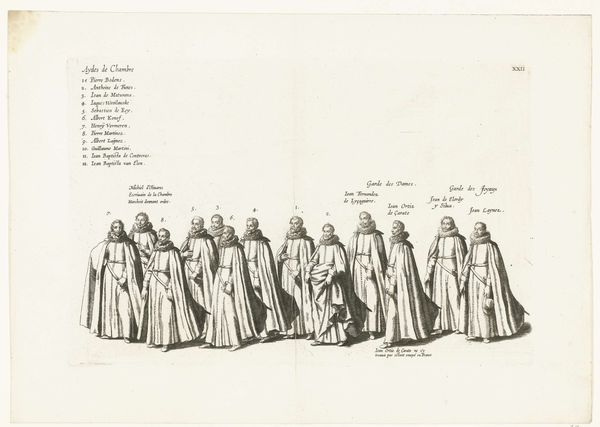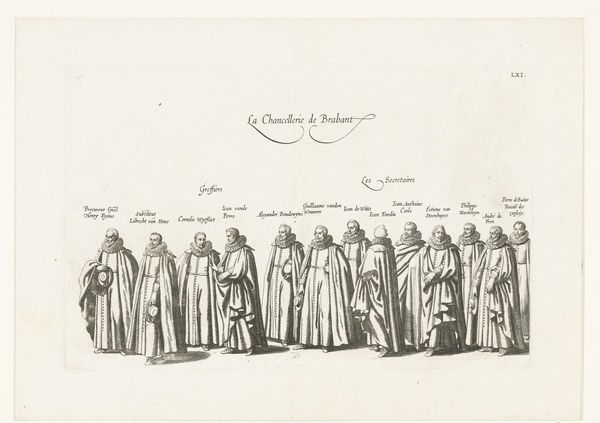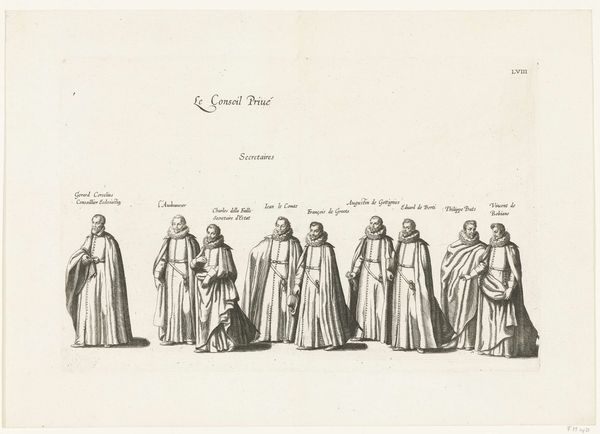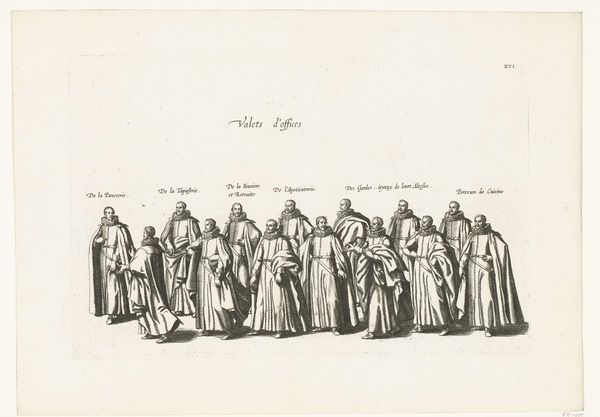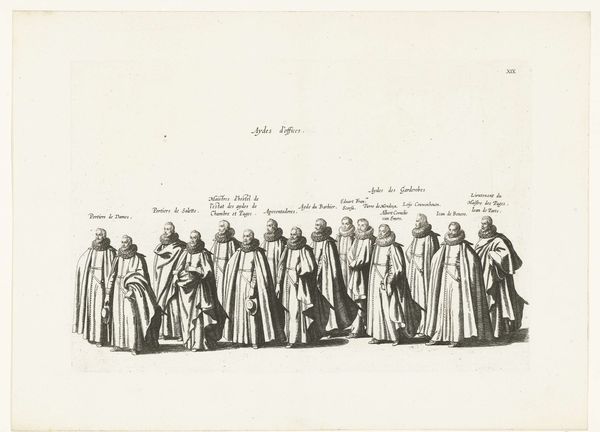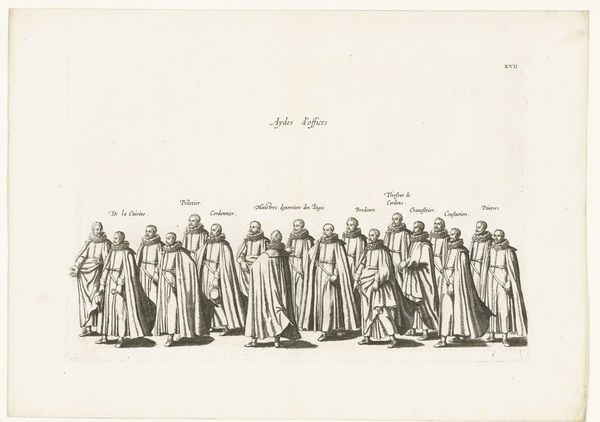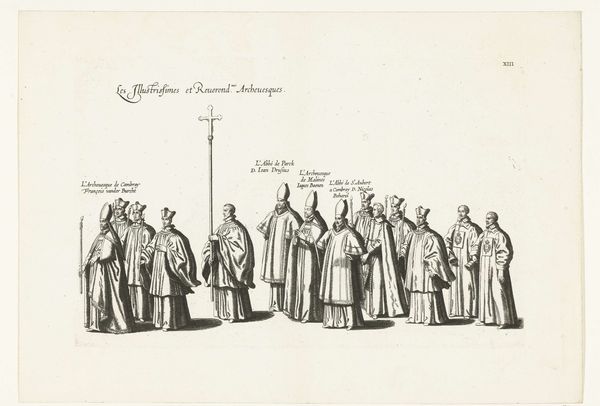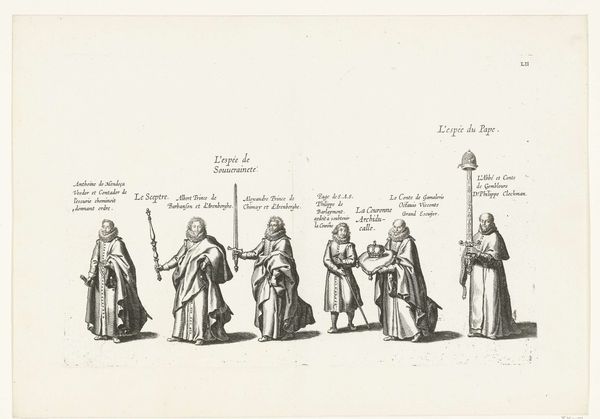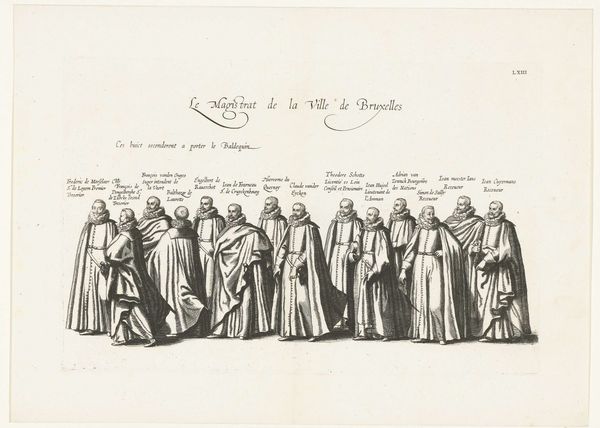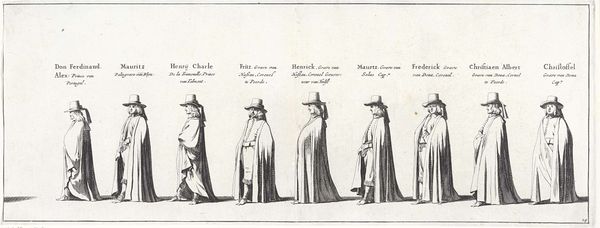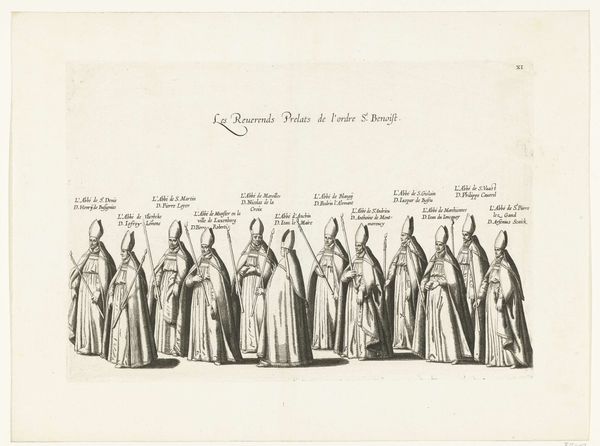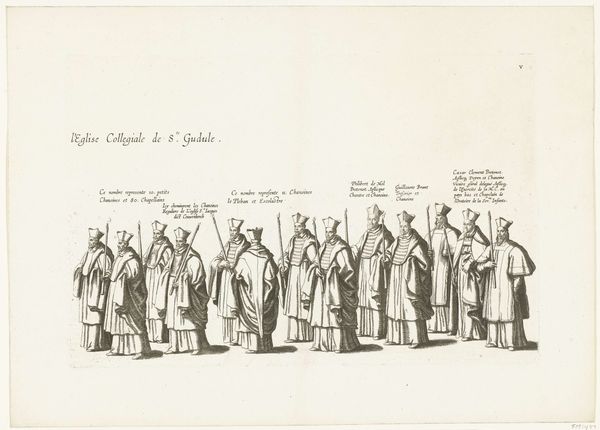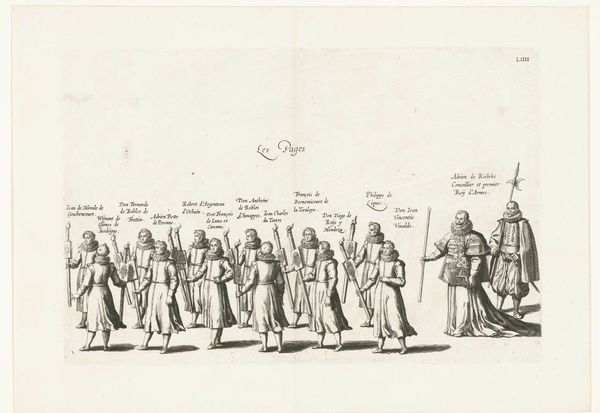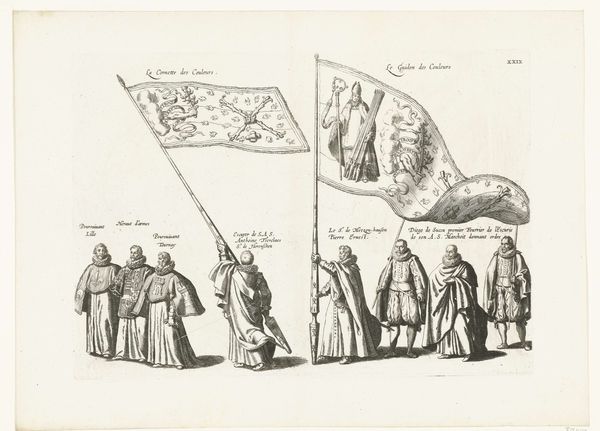
print, engraving
#
portrait
#
baroque
# print
#
old engraving style
#
group-portraits
#
history-painting
#
engraving
Dimensions: height 251 mm, width 380 mm
Copyright: Rijks Museum: Open Domain
Curator: Looking at this somber gathering, I'm struck by how static and formal it feels. Everyone appears uniformly attired, lined up almost like… paper dolls. Editor: Precisely! We're observing Cornelis Galle I's 1623 engraving, "Begrafenisstoet van aartshertog Albrecht," or, "Funeral Procession of Archduke Albrecht." These figures represent participants in the procession after Albrecht's death. It resides here at the Rijksmuseum. Curator: Engravings like this, mass-produced and disseminated, served a crucial symbolic role. Each figure, meticulously rendered, represents a societal pillar. Note the repetition of form in dress which shows solidarity and social cohesion, visually solidifying power structures. Editor: Yet, behind that visual power play, there’s a calculated manipulation of memory. Baroque display often masked political unrest; this highly constructed image may hide internal strife over succession or shifting alliances after Albrecht’s death. The crisp uniformity doesn't betray lived experiences. Curator: Perhaps, but that very act of memorializing in a baroque style elevates Albrecht and underscores the enduring presence of his influence, using visual symbolism to bypass fleeting anxieties of any specific time period. The ruffs on those figures also stand out--ostentatious signs of status. They visually constrict and separate each figure even while placing them in linear harmony. Editor: I’m less convinced. Galle’s choice of printmaking also democratized mourning by circulating imagery outside the aristocracy, which means the print addresses an audience of varying investment levels regarding Albrecht's power. How else might this broaden collective mourning outside his regime? Curator: Hmm... Perhaps the distributed image invites reflections on mortality irrespective of social standing? The symbols extend beyond courtly protocol. Still, let's not undermine its inherent propaganda--reinforcing power dynamics and creating a seemingly seamless narrative of historical continuity for viewers of the time, which continues resonating even now. Editor: Alright, I'll concede its historical weight but, equally, the piece can activate ongoing reflection concerning its complex political functions, beyond mere grief! Thank you, this has sharpened how I’ll see prints in this collection moving forward! Curator: Indeed, it's been quite insightful for me, too, seeing both the explicit symbolism and considering these subtler implications.
Comments
No comments
Be the first to comment and join the conversation on the ultimate creative platform.
